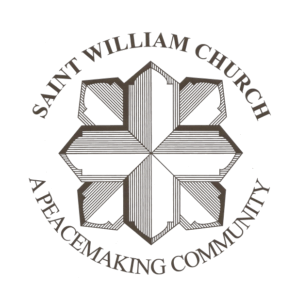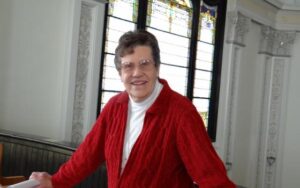Women Deacons and the Australian Plenary Council

St. Mary's Cathedral, Sydney Australia - Photo by Phillip Flores on Unsplash
After a crisis, there is a new vision. We have come to a turning point in Australia, and there is no going back. The Australian Plenary Council, the highest form of decision-making assembly in our Church, could have been a simple exercise in passing motions that had been discerned after years of Spirit-led consultation. But in fact it turned into Spirit-led disruption at the final crucial stage, and eventual resolution.
What happened last week was the culmination of four and a half years of ‘listening and dialogue’ then ‘discerning’ on the basic question, “What is God asking of us as a Church in Australia at this time?” The first submission phase collected responses from over 220,000 people in our country. Individual responses were not made public, only a report, but apparently a very high number of these mentioned women and their roles as a major issue for our Church. The second submission phase collected thousands of responses at both a national and local level, separated into six inspirational themes.
Last year in October the appointed Members gathered virtually for the first ‘celebration’ phase of the Council. They listened and discussed in a synodal style, leading to papers and specific proposals for action into the future. At the same time as the Members met in Council, our own movement of Australian Catholics Exploring the Diaconate, with the blog Liturgy on the Margins, launched. To our delight, women and the diaconate became a talking point in the Council, and a proposal was made to consider it in the motions of the final assembly.
Well, the final assembly just happened last week in Sydney. On the table were several motions about “Witnessing to the Equal Dignity of Women and Men”. They had already been subject to many amendments, and looked like they would be controversial. The point about “considering” or “supporting” women deacons in particular. Last Tuesday the 5th, these motions were up for consideration on the floor of the Council, to be reworded again, and then a consultative vote was held. But on Wednesday the bishops, who hold the deliberative vote, did not produce a qualified majority on either of the two resultant motions.
This was the crisis. The risk was that nothing could have been said at all about women’s dignity in the Plenary Council’s final document. Over 60 Members, women and men, silently stood at the side of the room in shock. The process was put on hold and the whole assembly decided to work more on the motions for later in the week. By this time, however, the damage had been done. So many women and their supporters were hurt and in grief.
But the story did not end there. By Friday, new motions were voted on and the good news is… they passed! While there were some changes and some toning down, the final document states: “should the universal law of the Church be modified to authorize the diaconate for women, the Plenary Council recommends that the Australian Bishops examine how best to implement it in the context of the Church in Australia”.
So this is a moment of hope. The conversation is happening, and has been highlighted all the more by disruption and Spirit-filled resolution. Voices have been heard and we have seen what happens when a diversity of the faithful share the room with those whose votes count. In Australia, we would like to offer our little step forward to the rest of the world, and would like to thank everyone who has been part of this journey.

Elizabeth Young
writes a blog on Australian diaconal ministry, Liturgy on the Margins. She was professed as a Sister of Mercy in 2010. She has a Bachelor and Master in Theology and has ministered with youth, prisons, parishes and nursing homes.


